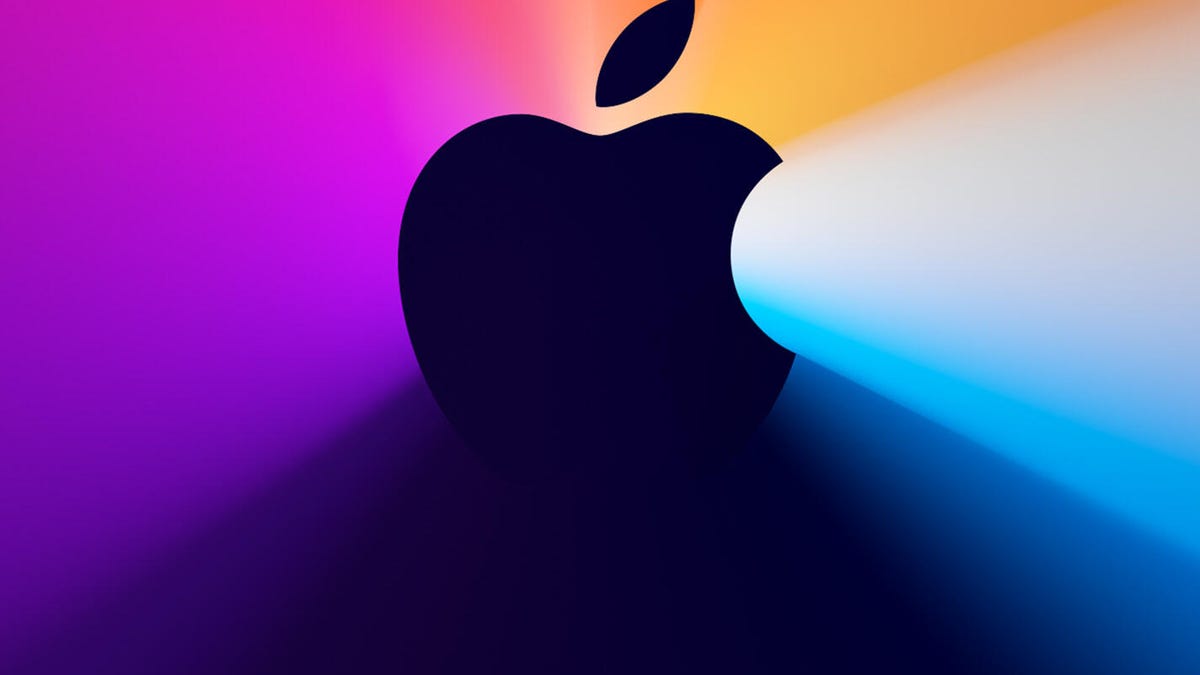Apple next online-only event set for Nov. 10, Apple Silicon Macs expected
The tech giant says it'll be making its next online announcements next week at 10 a.m. PT / 1 p.m. ET / 6 p.m. BST / 5 a.m. Nov 11 AEDT.

After the iPad Air , Apple Watch Series 6 , HomePod Mini and iPhone 12 , Apple's got "one more thing" to show us. The tech giant announced a new online-only event planned for Tuesday, Nov. 10, at 10 a.m. PT / 1 p.m. ET / 6 p.m. GMT / 5 a.m. Nov 11 AEDT, a week after the US presidential election. Apple's event will be streamed live via the company's website.
An image Apple used to tease its first iPhone announcement.
Apple is expected to announced its next-generation Mac computers, powered for the first time by the company's own Apple Silicon chips. The devices will also mark a change in the more than decade-long partnership between Apple and Intel , whose chips have powered the company's laptop and desktop computers sold since 2006.
As is typical, Apple didn't tip its hand about the event other than to say it would be about "one more thing." The background image of an Apple logo surrounded by beams of colorful light is reminiscent of the invite Apple sent in January 2007 for its first iPhone announcement. Back then, the Apple logo was surrounded by white light.
Apple also included an augmented reality feature on its webpage, showing an Apple logo opening and closing like the lid of a laptop.
This is super cool. The Apple event logo in AR resembles opening and closing a MacBook.
— Neil Cybart (@neilcybart) November 2, 2020
A new MacBook powered by Apple Silicon is coming. pic.twitter.com/R6pIpJTWPC
Apple's move away from Intel chips won't just change the way its computers work. Apple will also be cementing even greater control over its computers, allowing it to tune its software and hardware together, much the same way it does with its iPhones today. Analysts say that specialization has helped Apple get an upper hand on performance, as well as other benefits like battery life and photo quality.
"Most important, this means that iOS and iPadOS applications will be able to run natively on MacOS in the future, making it easier for Apple's 23 million developer partners to create applications across all Apple products," Morgan Stanley analyst Katy Huberty wrote in a note to investors this summer.
CNET's global team will cover Apple's event, as it's done with other conferences that have shifted online. Our coverage will include the real-time updates, commentary and analysis you can only get here.
Third event
The announcement will mark Apple's third major product launch in three months. In September, the company announced its new iPads , Apple Watches and the health service Apple Fitness Plus, which is being released later this year. In October, the company announced its new iPhone 12 series of phones , which CNET calls one of its highest-rated phones of all time.
Now Apple's expected to take on its Mac computers. There aren't too many rumors about what other features the Mac computers will include, other than the new Apple Silicon chips announced earlier this year.
Apple hasn't said what types of Mac computers it'll replace first, either. In 2006, it introduced its iMac consumer desktop and MacBook Pro laptop.
Whichever computers it announces next week, the company said it'll continue to sell Intel-powered computers during its transition period. Apple said performance improvements, battery life and easier connections with the iPhone and iPad are driving the change.
"Hardware and software is fundamental to everything we do," Apple's CEO Tim Cook said when announcing the effort this summer. "It will take Mac to the next level."
If Apple does announce new computers, they'll likely run Apple's new Big Sur desktop software, which promises a refreshed design, privacy upgrades for the Safari web browser and more advanced messaging capabilities. Apple also said it'll allow new Mac computers to run iPhone and iPad apps, albeit likely with a keyboard and mouse.

